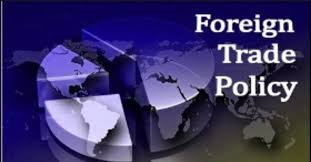The world changes constantly, and so does India’s trade policy to grab chances and meet needs.
The Foreign Trade Policy (FTP) of a country is a comprehensive set of guidelines and strategies formulated by the government to regulate and promote international trade, including imports and exports. The aim is to enhance economic growth, create employment, and improve the country’s position in global trade.
In India, the FTP is primarily formulated by the Ministry of Commerce and Industry and plays a critical role in determining the country’s foreign trade dynamics. It is usually updated every five years but can also undergo mid-term reviews.

What is Foreign Trade Policy (FTP) of India?
India’s foreign trade policy, or FTP, is an essential set of rules on how India does business with the world. The Directorate General of Foreign Trade (DGFT) takes charge of it. The main goals of India’s FTP are to boost exports, create favourable conditions for trade, and support steady economic growth.
Objectives of Foreign Trade Policy (FTP)
- Promote Exports: The primary goal is to boost India’s export performance, which helps in increasing foreign exchange earnings and improving the country’s trade balance.
- Boost Economic Growth: By facilitating smoother trade practices, the FTP aims to contribute to India’s overall economic growth.
- Encourage Investment: It encourages both domestic and foreign investment in export-oriented industries.
- Create Employment: Promoting exports often leads to the growth of various sectors, which, in turn, creates job opportunities.
- Strengthen International Trade Relations: It helps in enhancing diplomatic relations by promoting smoother trade agreements with other nations.
Key Features of India's Foreign Trade Policy (FTP)
Export Promotion Schemes:
The policy offers several incentives to encourage exports, such as:- Merchandise Exports from India Scheme (MEIS)
- Service Exports from India Scheme (SEIS)
- Export Credit Guarantee Scheme (ECGS)
These schemes provide financial support, tax benefits, and other incentives to exporters.
Trade Facilitation Measures:
FTP ensures the simplification of export-import procedures, reducing the time and cost involved in international trade.Duty Exemptions:
The policy provides various duty exemptions like the Duty Drawback Scheme and Advance Authorization Scheme, allowing exporters to receive duty refunds or exemptions on imported goods used in their production.Special Focus on New Markets:
FTP focuses on exploring new and emerging markets in Africa, Asia, and Latin America, which can contribute to expanding India’s export base.Enhanced Infrastructure:
Policies to improve logistics, ports, and transport infrastructure to reduce bottlenecks in the export process.Technological Upgradation:
The policy emphasizes innovation and technological advancements in trade practices to ensure that Indian businesses remain competitive globally.
FAQs
Benefits of Foreign Trade Policy?
- Global Competitiveness: It helps Indian businesses compete internationally by providing financial incentives, training, and access to markets.
- Diversification of Export Base: The policy encourages diversification, helping reduce reliance on traditional markets.
- Increase in Foreign Exchange: Boosting exports ensures that the country earns more foreign currency, which strengthens the economy.
- Support to MSMEs: The FTP often includes provisions to support Micro, Small, and Medium Enterprises (MSMEs) in their export endeavors.
India's FTP for Specific Sectors?
Agriculture:
The policy aims to boost agricultural exports like spices, tea, and fruits through incentives and easier export processes.Electronics and IT:
Special incentives for exporting IT and electronic products, with a focus on sectors like software and hardware exports.Handicrafts & Textiles:
India’s traditional handicrafts and textiles sector also gets a significant push through the FTP, with schemes offering financial aid and tax reliefs.Pharmaceuticals and Chemicals:
Export-oriented pharmaceutical and chemical companies receive targeted support under the FTP.
